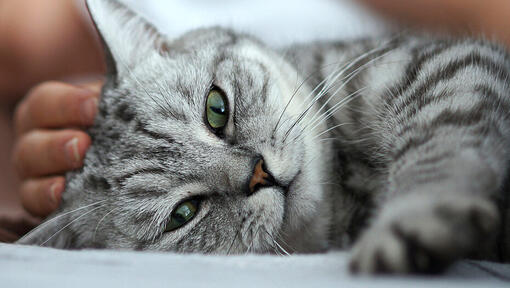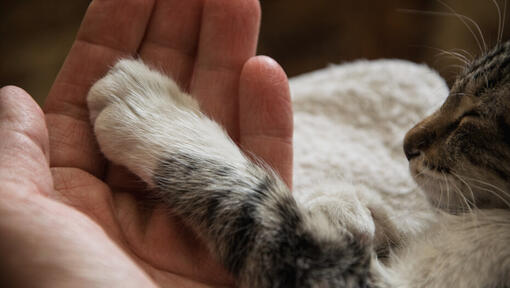8 myths and misconceptions about cats
8 myths and misconceptions about cats
Over the years, cats have baffled just about everyone, from owners to behaviorists to scientists. Because of their mysterious nature, there are many myths and rumors about cats, but how true are they?
Cats are mysterious creatures that many people struggle to understand. Over the years, our furry friends have been surrounded by a variety of legends, including some ridiculous rumors that they are in cahoots with the devil!
Most myths about cats have been debunked thanks to science and common sense. Read on to find out the truth behind the rumor of butter on cat feet, whether black cats are lucky and more.
1. The truth behind the black cat myth
The myth of the black cat is perhaps one of the most common stories and you have probably heard someone tell this story. In the UK, Europe and most of America, if a black cat crosses your path, people say it means bad luck is on the way.
In Germany however, direction is specific and if a black cat crosses your path from right to left it means bad luck, but if the cat moves from left to right it is considered auspicious. Also, in Japan it is thought to be very lucky, especially for single women, because a black cat promises good suitors on the way.
Debunked: The black cat myth is obviously false and probably arose from the fact that in the Middle Ages black cats were thought to be the pets of witches. Unfortunately, this rumor is still widespread today and black cats often end up in recovery centers or find it difficult to find a new home.
2. Save yourself from a cat’s whiskers
A cat’s whiskers almost seem to give them superpowers, so it’s only natural that people assumed they were good luck charms. So much so that there is a popular legend according to which if you put a mustache in a white bag and place it in your car, it will help prevent accidents, thefts and breakdowns; some even claim it can help you avoid speeding and parking tickets!
Disclaimer: While we would have liked to believe it, the cat whisker myth isn’t true and likely arose because cats rarely shed their whiskers.
3. Cats were responsible for the plague
Yes, you heard right. In the Middle Ages, cats were thought to be responsible for spreading the plague. This was due to the fact that cats were thought to be in cahoots with witches, warlocks and ultimately the devil. Many people in the Middle Ages believed that the devil was responsible for all the horrors of the Black Death and began to destroy his “faithful servants” – cats.
Disproven: It was actually a type of flea that lived on mice that spread the plague. Curiously, the destruction of the cats caused the rat population to flourish and the Black Death spread faster than ever before.
4. Cats have nine lives
The origins of this widespread cat myth are not clear, but it is mentioned in Shakespeare’s Romeo and Juliet and there is even an old English proverb that tells it. The proverb goes like this: “A cat has nine lives. For three he plays, for three he leaves and for the last three he stays”.
Debunked: This myth about cats probably arose from the fact that cats always seem to land on their feet and often seem able to suffer falls and serious accidents without being seriously injured. But why nine? Probably because nine is a magical number and cats were thought to be magical creatures.
5. The myth of cats and milk
The image of a cat happily drinking milk has been ingrained in us for generations. Many have come to believe that cats should drink milk because it is good for them and provides them with the nutrients they need to stay healthy.
Debunked: The myth of cats and milk is completely false, and it might surprise you to learn that most cats are actually lactose intolerant. In fact, once weaned from their mother’s milk, cats lose the enzyme to digest the lactose in milk and, if given dairy products, it is likely to cause stomach upset.
6. The butter on cats paws rumor
If you have a cat, you may have heard it from a friend or family member when you moved house with your feline. The theory is that if you put butter on a cat’s paws, it will take away the smell of the cat’s old house. In this way the cat will concentrate on licking its paws and acclimatising.
Disproven: The rumor of butter on cat’s paws is not true at all and, in fact, will probably have the opposite effect. The smell of the previous house will remain on the fur, not just on the paws. Also, your cat is likely to be more stressed as she tries to get the butter off her paws.
7. Cats are dangerous for pregnant women
It is commonly believed that pregnant women should avoid having cats due to the risk of toxoplasmosis, a disease that can be transmitted from cat feces to humans and cause problems for the unborn child.
Disclaimer: Toxoplasmosis contracted in this way is very rare. The greatest risk is from contracting the parasite that causes the disease, Toxoplasma gondii, from eating undercooked meat or unwashed vegetables. Pregnant women should avoid cleaning the litter box if possible and have another family member do this, or wear gloves.
8. Let cats lick their own wounds
You may have met many pet owners who insist that cats don’t need veterinary treatment for wounds because their tongue is antiseptic. This is a feline myth that is still believed today, and many take a lax approach to treating their cat’s wounds. But how true is that?
Disclaimer: A first lick on the wound can be beneficial, as the unique barbels of the cat’s tongue can help remove dirt trapped in the wound, and some believe that their saliva contains some antibacterial qualities. Beyond this, Vet Street points out that our cats often go overboard with cleaning and can run the risk of damaging the wound and prolonging healing by keeping it permanently moist. If your cat has a wound that doesn’t seem to be healing, contact your vet.
Did you know these myths and legends? To learn more about the feline world, read our guide to discover the differences between male and female cats.





